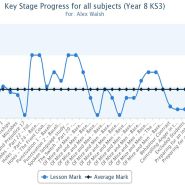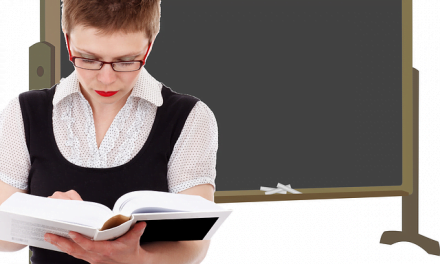With the new Ofsted inspection guidelines published in April, here we will take a look at the ways you can demonstrate your pupils’ progress ready for an Ofsted inspection.
1. Planning
It may seem like an obvious suggestion, but ensuring your lessons are well planned and that they effectively demonstrate your pupils’ knowledge and understanding of the topic is essential.
Planning doesn’t need to consist of physical documentation as the School Inspection Handbook states: ‘Inspectors do not expect teachers to prepare lesson plans for an inspection but will expect the delivery of lessons to demonstrate evidence of effective planning’
As Wallace and Kirkman discuss in Pimp your Lesson! Prepare, Innovate, Motivate and Perfect, your lessons ideally should ‘have a clear sequence and end-goal in mind, but ensure that you remain flexible enough in your planning to respond to the needs of your class on the day’
Therefore it would be good practice to ensure that the overall objective of the lesson is clear and that steps are taken to achieve that object throughout its duration. All of this can be achieved through good planning with room for flexibility on the day.
2. The Lesson
For your lesson inspection, do what you would usually do. Don’t try to create an overly complicated lesson to impress the inspector.
Ensure your lesson adequately probes students for detailed responses to questions, has differentiated activities to meet the needs of individual pupils and has a clear objective.
There is greater focus on learning than teaching, therefore ensuring your lesson demonstrates your pupils’ learning by using the same methods as usual is by far the best tactic.
Although the new guidelines emphasise the fact that teaching style will not be under scrutiny, the proof that the lesson promotes development and attainment is paramount, regardless of the form it comes in. If you can demonstrate the fact that your method of teaching facilitates your pupils’ progress and attainment, it should not matter if that particular lesson doesn’t show independent learning, for example.
“Inspectors must not advocate a particular method of teaching or show preference towards a specific lesson structure. As such, inspectors will not look for a preferred methodology but must record aspects of teaching that are effective and identify ways in which teaching and learning can be improved”.
3. Marking
Feedback in your pupils’ books needs to represent the idea that you are showing your pupils how they can correct their own work and how they can improve.
Summative and formative feedback should be given and ideally your pupils work should show evidence of your pupils responding to their feedback.
“Remember that the most meaningful, progress-oriented feedback goes beyond the careful and pain-staking comments that you lovingly annotate in their exercise books and on assessments: feedback is also about all the information that you gather from your students over the course of the lesson. How are they ‘feeding back’ to you about what progress they are making in their learning?”.
4. Tracking progress over time
This is the most important element you need to be able to prove. In your planning, in your lesson, in your feedback, you need to be able to prove how your methods are making your pupils progress over time.
“When judging achievement, inspectors have regard both for pupils’ progress and for their attainment. They take into account their starting points and age. Particular consideration is given to the progress that the lowest attaining pupils are making.”
- Does your current system of tracking clearly demonstrate how your pupils progress over time?
- Does it demonstrate the needs of the individual pupil and is the data utilised effectively within the curriculum?
- If there are dips in attainment from certain students, can it be explained?
- What are you doing to improve standards?
These are all issues to keep in mind when demonstrating the effectiveness of your tracking methods and its purpose of demonstrating pupil progress and attainment.
5. Self-evaluation
Be aware of the school’s strengths and weaknesses and be prepared to demonstrate your plan of action for combatting those weaknesses.
Ofsted emphasises the importance of self-evaluation for the improvement of each school and identify the idea that ‘Self-evaluation provides the basis for planning, development and improvement in schools. Inspection takes full account of, and contributes to, a school’s self-evaluation.’
Having evidence of the way the school is tackling issues of underperformance and what measures have been introduced to facilitate improvement In order to facilitate the on-going nature of self-evaluation and development for the school, the pupils and the teachers alike, after an Ofsted inspection teachers are able to request copies of their lesson observations from the Ofsted website.
What methods of tracking pupil progress you currently have in place? Share your Ofsted experiences with us in the comments below!










